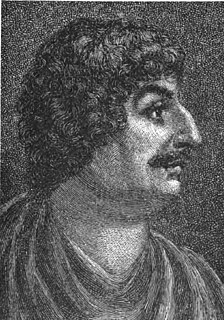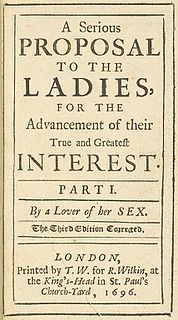A Quote by Algernon Sidney
'Tis hard to comprehend how one man can come to be master of many, equal to himself in right, unless it be by consent or by force.
Related Quotes
Whatever each man can separately do, without trespassing upon others, he has a right to do for himself; and he has a right to a fair portion of all which society, with all it combinations of skill and force, can do in his favor. In this partnership all men have equal rights; but not to equal things.
A covenant not to defend myself from force by force is always void. For ... no man can transfer or lay down his Right to save himself. For the right men have by Nature to protect themselves, when none else can protect them, can by no Covenant be relinquished. ... [The right] to defend ourselves [is the] summe of the Right of Nature.
For my part I think the Learned, and Unlearned Blockhead pretty equal; for 'tis all one to me, whether a Man talk Nonsense, or unintelligible Sense, I am diverted and edified alike by either; the one enjoys himself less, but suffers his Friends to do it more; the other enjoys himself and his own Humour enough, but will let no body else do it in his Company.
It requires but a very small glance of thought to perceive, that although laws made in one generation often continue in force through succeeding generations, yet that they continue to derive their force from the consent of the living. A law not repealed continues in force, not because it cannot be repealed, but because it is not repealed; and the non repealing passes for consent.































